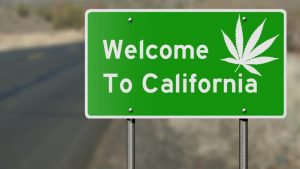Licensed cannabis stores can be verified by Californians using QR codes

California’s cannabis consumers can now feel more confident when purchasing their supply from one of the huge state’s long list of vendors. A unique application designed for use on smartphone devices will enable consumers to determine whether or not a dispensary is legitimately licensed to conduct cannabis-related business operations.
On Thursday, December 19, the Bureau of Cannabis Control announced the new program, which would prompt retailers to display QR codes in their store windows. Using a cell phone, the checkerboard-style codes will be scanned by an automated system embedded within the online license bureau. A generated result will inform California’s cannabis consumers if a store is unlicensed and therefore considered a black market dealer.
The QR code identification system will encourage consumers to only visit retailers that ”carry products that are tracked, tested, and legal,” according to Bureau Chief Lori Ajax. It received a positive response from the United Cannabis Business Association; a sponsor of the state’s licensed retailers.
Individuals who don’t possess a smartphone device that is compatible to scan QR codes can easily carry out a search on CApotcheck.com. Featured on this search tool are the names of every business licensed by the Bureau.
California’s black market dealers offer a cheaper alternative to licensed vendors
When Proposition 64 was passed by voters in 2016, adult-use cannabis sales were legalized across the state of California. Although the market is now entering its fourth year, the black market continues to flourish. One of the driving factors is the steep excise tax imposed on sales; rates are as high as 50 percent in certain communities.
The steep tax rates on legal cannabis sales in California are prompting consumers to buy from unlicensed vendors; the vast majority of which are undercutting the legal market on price. Based on reports released near the end of last year, black market cannabis sales in California exceed legal sales by a three-to-one margin.
“When voters approved Proposition 64, there was an immediate assumption that overnight, everywhere that sold cannabis was legal and safe,” said Executive Director Ruben Honig in a statement. “Unfortunately, this couldn’t be further from the truth. California’s illicit market is nearly three times the size of its legal one and many consumers cannot tell the difference, leading them to unknowingly purchase untested and unregulated products that may put their health at risk.”
2020 to see slow start for California’s cannabis industry, QR codes could help
Back in November, over 400 business permits were suspended in California. As a direct effect of this, approximately five percent of the colossal state’s legal supply of cannabis was impacted. However, industry insiders believe that the permit suspensions won’t create further tension between the legal and illegal markets, since those licenses were suspended from already-inactive companies.
Despite the fact that there is an abundance of illicit cannabis dealing happening throughout California, the introduction of QR code scanning will ensure quality and safety is not compromised for consumers. Since the black market is widely unregulated, products go untested; putting consumer health at-risk. For this reason, among many others, QR code scanning can greatly benefit California’s legal cannabis industry.







